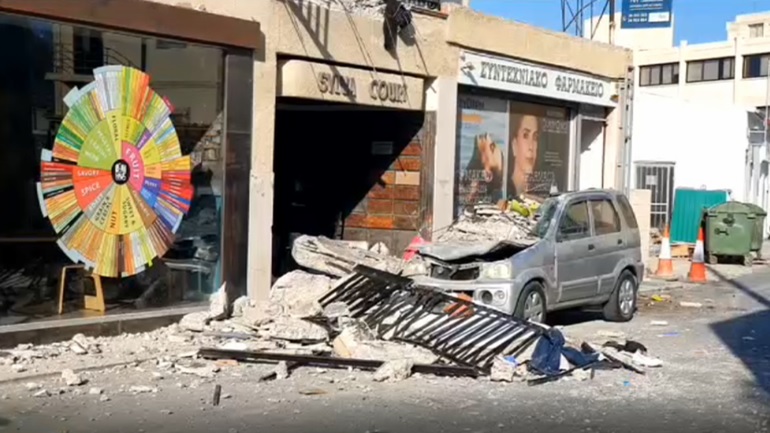It’s only been three months since there was a massive fuss when two balconies on separate buildings collapsed in Paphos in the space of 24 hours and then it all died down again, as it does, until it happens again.
This time it happened in Limassol. Same scenario. Balconies on two separate buildings collapsed within 24 hours of each other. In both Limassol and Paphos it was a miracle no one died, though there were injuries. Then another balcony fell in Nicosia on Tuesday as if there is some kind of epidemic.
The scenario could be played all over Cyprus at any time due to the number of old buildings left to rot, and due to the poor state of construction materials often used.
Limassol Mayor Nicos Nicolaides sounded the alarm and called for legislation to be amended to deal with the problem. But why did he, and the Paphos mayor at the time, wait to speak up after incidents had occurred? This is something where the pressure for something to be done should be constant.
Nicolaides said the majority of the dangerous buildings they’ve tagged were built after 1974, due to the great demand that existed for housing refugees.
There was no supervision, the regulations were incomplete, and the construction materials were of dubious quality, he said.
That may be but it does not excuse the fact that if authorities are aware of this yet have done little to mitigate it. It is also more than likely that the problem does not just exist when it comes to those post-1974 buildings.
During the property boom years some 20-25 years ago, how many developers were erecting housing estates and apartment blocks in a hurry and cutting corners to make a quick buck? It could be just a matter of time before this adds to the problem.
The falling balconies bring to mind photos of the fenced-off ghost town of Varosha abandoned in 1974, yet their balconies seem to be intact for the most part. It would not be wise to stand on them, but they don’t seem to have fallen off randomly either, which suggest a better quality of construction was done in the past.
The issue of old, unsafe buildings is not new and there is no quick solution. The scientific technical chamber (Etek) has called for amendments to the legislation saying it is currently weak and ineffective. The organisation further argued that the state should subsidise renovation works until the necessary legislative changes are made.
Nicosia municipality, which has to deal with its fair share of dangerous buildings, says due to the current legal set-up, when a property owner ignores warnings to repair, they have the power to go in, make repairs and impose an administrative fine. But all these costs are borne by the taxpayer.
And even though this mechanism exists, objections and appeals are not dealt with swiftly by the interior ministry, rendering the process time-consuming, inefficient, and not fit for purpose, the municipality says.
It has also made a number of suggestions to improve the situation but has come up against political opposition. We can only guess as to why that is.







Click here to change your cookie preferences